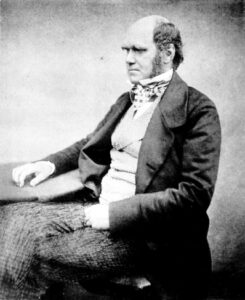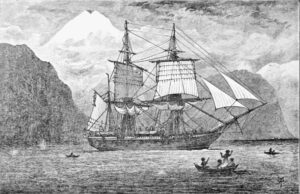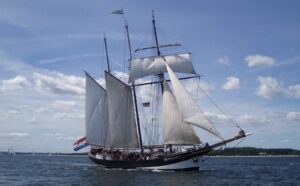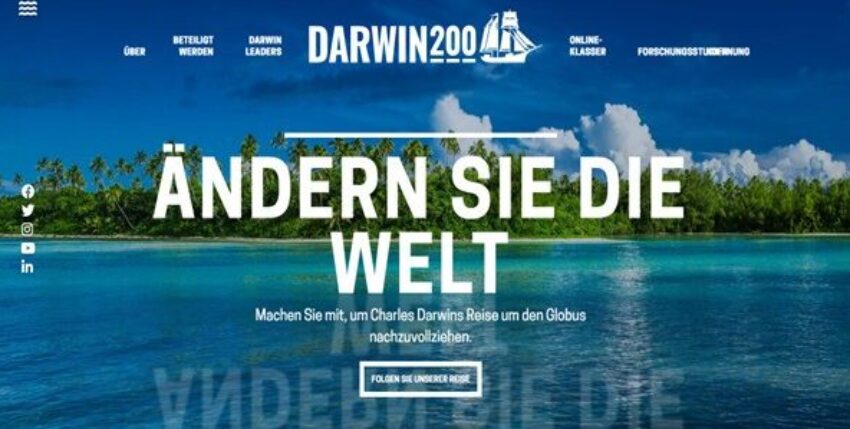Plymouth/UK: Almost two centuries after Charles Darwin's journey around the world, a group of researchers has followed in his footsteps. They set off from the southern English port city on 15 August 2023 on a two-year sea voyage on the Dutch three-masted topsail schooner "Oosterschelde" (built in 1917, 50 metres long). The DARWIN200 expedition will cross four continents, study the local wildlife and promote nature conservation.

History
The British naturalist Charles Darwin (1809 - 1882) was part of an expedition to explore the "extreme south of America". The two-year sea voyage on the 27-metre-long British survey ship HMS "Beagle" (launched in 1820) lasted almost five years and helped him to develop the theory of evolution. Darwin waived his salary so that he would not have to hand over the exhibits collected during his forthcoming investigations to government agencies.
After travelling the world, it took Darwin almost two decades to publish his book "On the Origin of Species" at the end of 1859, which became the fundamental work on the theory of evolution. Darwin explained that animal and plant species change through natural selection over long periods of time according to the principle of "survival of the fittest", i.e. "the specimens of a species that are best adapted to the environment survive". He also hypothesised that all existing creatures descended from common ancestors.
Darwin thus opposed the theological idea of a "Creator" who had created all species unchangeably. He therefore faced extreme opposition, particularly from church circles - all the more so when he extended his theory to humans in 1871. It was not until 1996, more than a century later, that the Catholic Church officially recognised Darwin's interpretation.

Expedition planning
The conservation expedition DARWIN200, which will cover around 40,000 nautical miles, intends to anchor in 32 harbours with the "Oosterschelde", including all the important harbours that Darwin had also called at with HMS "Beagle".
The urge to explore
The group will travel to a number of remote locations such as the Galapagos archipelago, where Darwin's observations that related bird species differ from island to island helped inspire his seminal book "On the Origin of Species".
The initiator of DARWIN200 said that the researchers will study the effects of climate change on coral reefs and shrinking wildlife habitats, but will also plant thousands of trees at the same time to alleviate the problem of land desertification. The purpose of this project is to identify solutions and actions that each of us can take for a better future.

Appeal
The patrons of the project include Darwin's great-great-granddaughter, the botanist Sarah Darwin, and the British primatologist Jane Goodall.
"We all know that we are in the midst of the sixth great extinction, and there is a lot of doom and gloom being spread about environmental problems, climate change and the loss of biodiversity," says Goodall. This trip is intended to show many people that there is still time to make a difference.
Additional information under https://darwin200.com/
DARWIN200 has three global objectives:
Goal 1: Empower
Throughout the voyage, 200 selected 18 to 25-year-old scientists and conservationists from almost every country in the world will be temporarily on board the ship to be trained as "Darwin Leaders" in environmental protection. They will help political decision-makers to shape the world of tomorrow.
Goal 2: Inspire
The aim is to inspire the global public through activities in the "world's most exciting classroom" to better understand and appreciate nature and the efforts to protect it.
Goal 3: Solve
The aim is to reach citizens around the world with real conservation problems broadcast live from the ship and through interactive citizen science research projects. The focus is on researching practical solutions and viable ways in which we can all contribute to a better future.
Source: gCaptain, Welt, DARWIN200, Wikimedia







